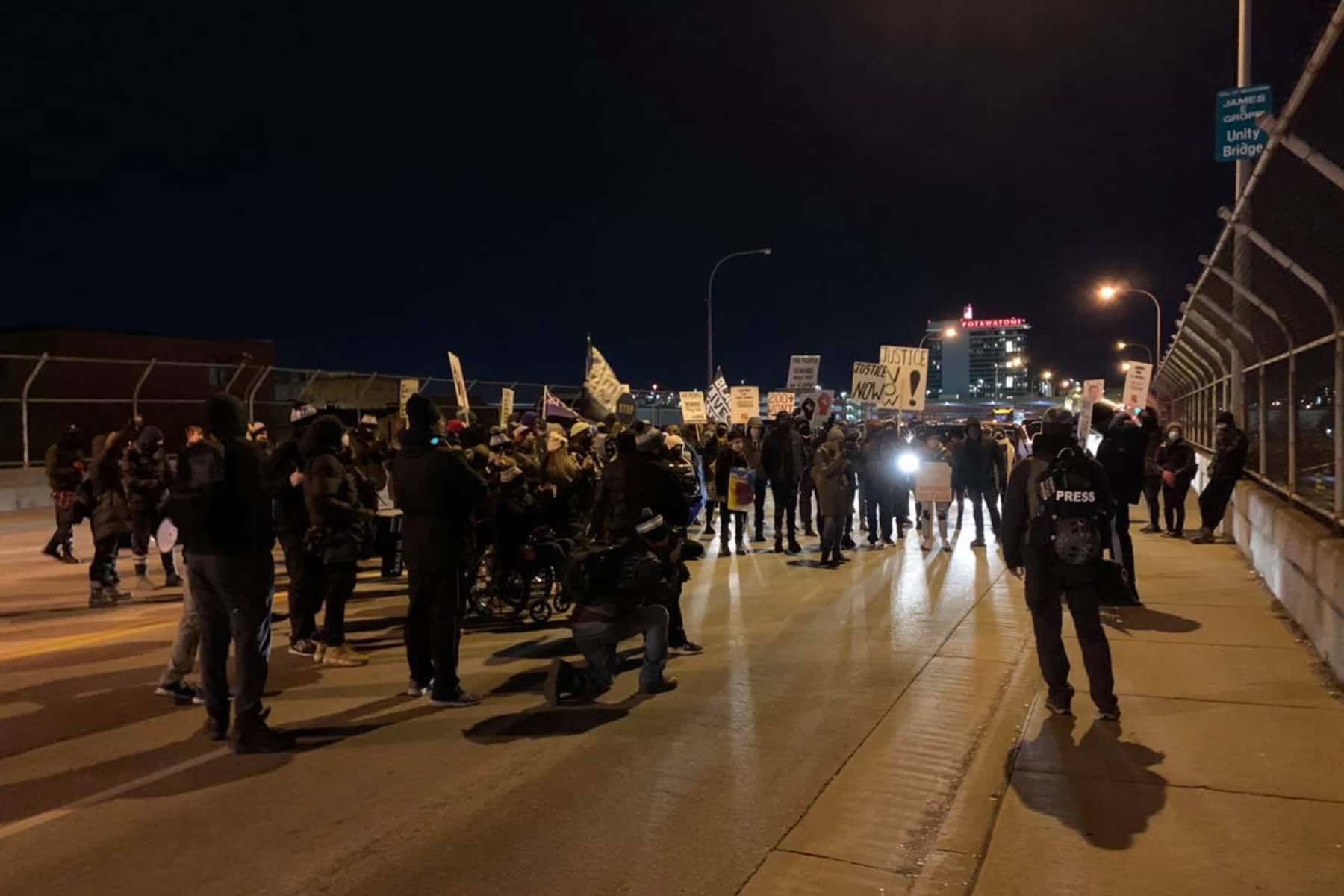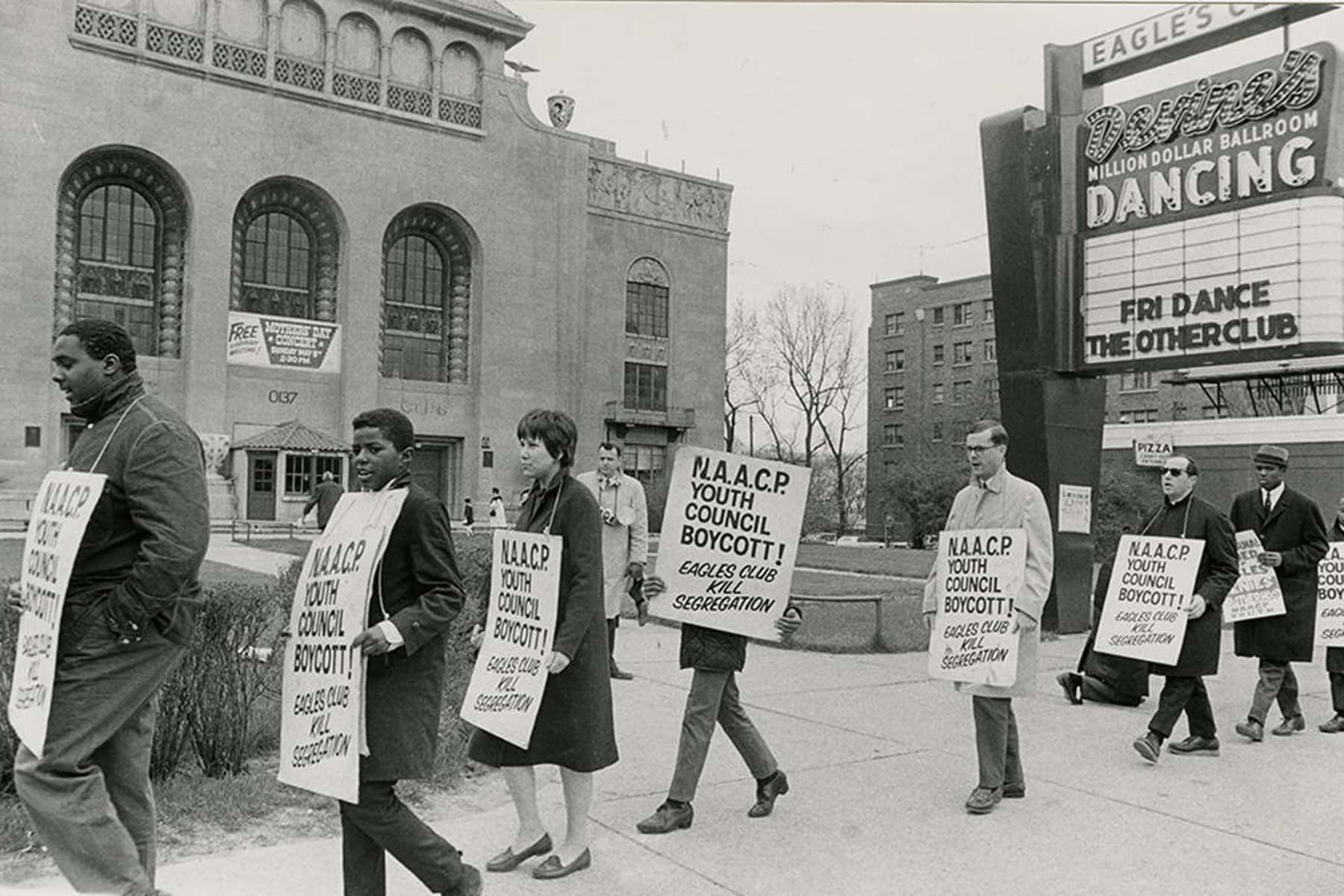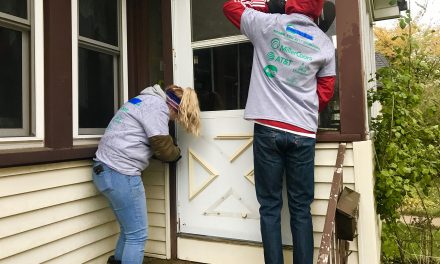
Supervisor Ryan Clancy released a statement on December 14 recognizing the accomplishments of Milwaukee County residents who have been marching for 200 days to demand action under the banner of “The Peoples Revolution.” Supervisor Clancy had joined many the daily marches as a volunteer legal observer, and address the assembled activists prior to the evening march.
“In 1967, Milwaukee took to the streets to protest discriminatory housing practices; the parallels to our time are striking.
“December 14th, 2020 marks the 200th day of marches and action across Milwaukee from The Peoples Revolution (TPR). Like the folks marching half a decade ago, TPR has specific, common-sense legislative demands. In 1967, the demands were for legislation to reduce housing discrimination; today, the demands center around law enforcement in our community, from divestment to residency requirements.
“Although most people now look back on Milwaukee’s Open Housing Marches as an inspiration, there was significant opposition to them at the time. Like the marches half a century ago, the protests today are not met with universal admiration, although the few counter-protesters from recent months have been more subtle than the crowds of swastika-wearing counterparts from a generation ago.
The Peoples Revolution was founded on the principals of providing safety and accountability for Black and Brown people and believe that all loves cannot mater until Black lives matter. The Peoples Revolution has been marching since May 28, 2020 and will continue to agitate, educate, and organize for justice. Monday, December 14, 2020 will mark the 200th consecutive day of action.
“I’ve been privileged to volunteer as a legal observer for many of the last 200 days, especially when the march comes through our community, and have seen overwhelming support from our neighbors, with some from folks waving and cheering from their porches with their children, and others grabbing a jacket and mittens to march along with them.
“I am proud to sponsor a citation commending The Peoples Revolution for their first 200 days of action and am happy to see that a majority of my colleagues on the Milwaukee County Board of Supervisors signed on to it. But the protestors are not demanding a symbolic certificate: they demand and deserve action.
“In 1968, the marches ended when the Fair Housing Act passed Congress and a stronger local ordinance – for which Alderwoman Vel Phillips had been advocating for six years – passed Milwaukee’s Common Council. In Milwaukee today, though, the remedies are nearly completely at the local level, and we’re failing to take action.
“We’ve managed to do only the bare minimum: qualified bans on chokeholds at the county and city levels which should have been addressed a decade ago, and a few accountability measures. These are necessary, and far overdue, but these are not enough.
“First among the demands of the protesters – widely echoed by individuals and community organizations across our community – is the movement of funds away from law enforcement and towards human needs.
“My colleagues and I failed to get a majority to take even a dollar away from the Milwaukee County Sheriff’s Office during the 2021 budget deliberations – actually adding $150,000 to the recommended budget – and the City Council did not entertain an amendment to move money away from the Milwaukee Police Department.
“This may seem discouraging. Looking back on Milwaukee’s past struggles for civil rights, though, can give us perspective and optimism: the fight against housing discrimination did not take 200 days – it took more than six years to achieve victory, and still isn’t over.
“I’m hopeful that we can get on the right side of history a little faster this time, and I’m grateful for The Peoples Revolution’s push to help us get there.”
The Peoples Revolution has crafted 10 universal demands and cal on all levels of government to adopt these demands including: refunding the community, demilitarizing law enforcement agencies, community oversight, police accountability, mental health of officers, ethical treatment of civilians, body camera use and accountability measures, de-escalation mandate and training for all police, undergraduate requirements for police, and financial incentives for residency.
© Photo
Ryan Clancy and the Milwaukee Public Library















